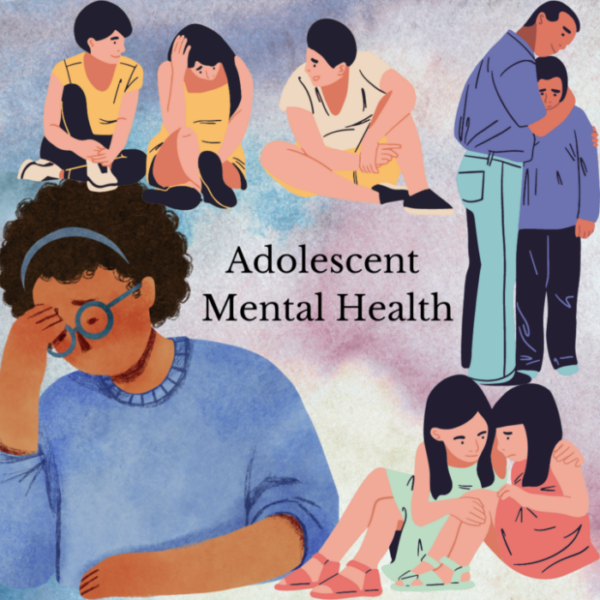Why do we conduct this study?
Adolescent depression is a common mental health condition that causes much stress and suffering and can increase an individual’s risk of developing psychological and physical illnesses later in life. Current treatment outcomes are not as good as we would hope, with a high proportion of people experiencing recurrent episodes of low mood. Therefore, we need to develop more effective strategies for detecting symptoms of low mood and depression and early intervention, to prevent mild symptoms from developing into a more severe and chronic pattern. This led to the launch of our project “Emotional Vulnerability in Adolescents (EVA) Study”.
Who is conducting this study?
This study was launched in 2018 at the University of Edinburgh led by Chief Investigator Stella Chan an academic clinical psychologist, in collaboration with other researchers with expertise in mental health science. Since 2020, our core team has moved to the University of Reading. This study is generously supported by Wellcome Trust, a charity organisation that funds health and mental health research.
What are the key objectives of this study?
The primary objective of this project is to identify factors and mechanisms that are associated with symptoms of adolescent depression. Our study is based on a bio-psycho-social model, meaning that we aim to look into factors that are related to our biological functions (how the body works), psychological processing (how we think, feel, and behave), and social environments (such as our social relationships). We also focus on factors that are potentially modifiable, meaning that we try to identify characteristics that we can help people to change. This is particularly important to inform development of effective treatments and support for young people.
What does the research involve?
The EVA project comprises 3 phases.
In phase 1 (baseline phase), approximately 400 young people aged 12- to 18 from state and independent secondary schools in Scotland were recruited for the study. Our participants supported our research by completing a range of psychological questionnaires, providing biological samples (hair and saliva), and wearing a wristwatch (called Acti-watch) to record their sleep. Our participants also completed three measures to assess symptoms of depression and anxiety and well-being. All these have provided comprehensive information that has allowed the research team to answer important research questions. This phase was completed in 2018.
In Phase 2), six months after the participants completed the baseline assessment in Phase 1, we asked them to fill in the same three measures to assess their symptoms of depression and anxiety and well-being. This data helps us understand how adolescents’ mood and well-being change over time and whether these changes are associated with their biological and psychosocial functions. This phase was completed in 2019.
-In phase 3, we plan to contact the participants again to assess their symptoms of depression and anxiety and well-being levels for the third time. We originally planned to conduct this phase 12 months after Phase 1. However, this phase has been postponed until now. In 2023, we are contacting participants again to invite them to complete a few more questionnaires for us. All the information collected will help us examine how adolescents’ moods and well-being change over a period of 60 months. This is a period of particular importance as many adolescents would have gone through significant changes in their life, including the COVID pandemic and its impact on everyday life.
Findings to date:
Our preliminary findings so far have shown that neuroticism, rumination, stress, and external shame are particularly associated with depression and anxiety symptoms among adolescents. Further analyses and preparation of manuscripts to present findings are underway.
Important Information and Updates for our Participants:
The study has undergone several changes due to unexpected circumstances. We would therefore like to make our participants aware of the following information:
- If you had provided us with a sample of your hair, we would like to let you know that all the hair samples were analysed in a laboratory at the University of Dresden, Germany. The laboratory has a longstanding collaborative relationship with the University of Edinburgh and has helped analyse biological samples in many other ethically-approved research studies. The hair samples were sent to the laboratory without any personal information attached; as such, the confidentiality of your data remains absolutely unaffected.
- Moreover, if you have previously consented to us accessing your NHS clinical records, we would like to update you that we have not accessed any NHS clinical records and will not do so in the future. We have deleted all the relevant personal information in our record to protect your confidentiality.
We do not think that the changes above would have any negative impact on you. However, if you would like to ask us any questions, share your concerns, or withdraw from the study, please get in touch with us.
We plan to contact all participants to invite them to complete a few more questionnaires as part of Phase 3 of the study, and as a token of thanks will offer a £10 retail voucher. If you do not receive any email from us, this may be because we do not have your up-to-date contact information. If you would like to continue your participation in the study but have not received any email from us, please feel free to get in touch with us.
We would like to take this opportunity to tell you how grateful we are for your support of our research. Without your help, our study would not be possible. A Big Thank You to you all.
Contact Information
Asnea Tariq, Postdoctoral Research Fellow, University of Reading
Email: asnea.tariq@reading.ac.uk
Professor Stella Chan, University of Reading
Email: s.chan3@reading.ac.uk


